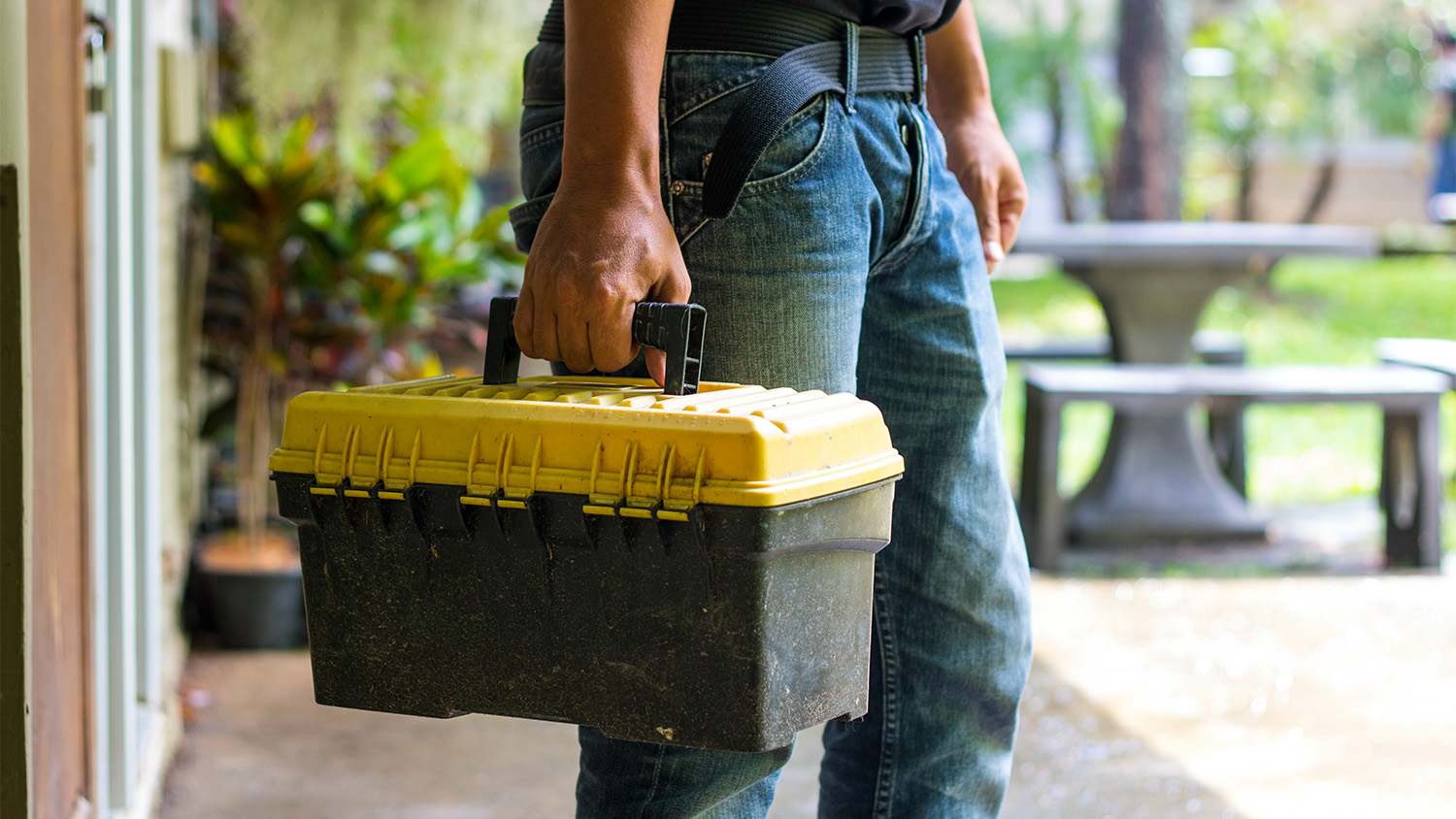Do Handypersons Bring Their Own Tools and Materials to the Job?
Handypersons bring their own tools, but you need to know these facts about materials


Artists have their easels. Astronomers, their telescopes. And handypersons will always bring their favorite power tools and hand tools to the job.
But when it comes to materials, the answer isn’t so cut and dry. You may need to supply them—especially when your handyperson doesn’t anticipate needing them in advance.
What You Need to Know About Handypersons Buying Materials

While many handypersons won’t charge you for a run to the store, others might. So don’t be surprised if the charge shows up on your bill.
Most handypersons charge $60 to $125 per hour, while others charge a flat rate (about $400 to $600, depending on your project and where you live). Before you send your handyperson out for materials, ask them if you’ll be paying their hourly rate for the trip. With an average cost of $90 per hour, you might prefer to pick up materials yourself—especially when they cost less than your handyperson’s hourly fee.
Material Markup Cost
Just like contractors, a handful of handypersons might charge a materials mark-up cost between 15% to 50%. The markup usually depends on:
The scope of your project
Labor costs
Size and weight of materials
For example, handypersons will charge a higher markup for a few sheets of drywall (4 feet by 8 feet) that requires labor than smaller materials like drop cloths and tape that can easily be tossed into a shopping bag.
Even with a handyperson’s materials discount, you could end up paying the full retail price for materials—or even higher, depending on their markup percentage. A good rule of thumb: Always ask your pro in advance if they charge a markup fee and, if they do, how much that fee is.
Save Money and Time By Providing Your Own Materials
If you have the time in your schedule and the handyperson allows customers to pick up materials, you may want to get them yourself to keep your bill down. Ask your handyperson for a list of the items they need.
Keep a Storehouse of Materials At Home
If you’re an avid DIYer, you might have all the materials you need already tucked away in your garage or shed. Work with your pro to see if you can offset any materials costs with what you already own.
The Golden Rule: Always Communicate With Your Handyperson
Remember that consistent communication with your handyperson is key. When you’re first searching for a local handyperson to work with, communicate your needs and have a clear understanding of what you’re going to pay for materials.





- Power Washing
- Greenhouse Companies
- Wood & Pellet Stove Repair
- Vinyl Siding Repair Contractors
- TV Antenna Services
- Ceiling Repair Companies
- Wall Repair Services
- Emergency Handymen
- Countertop Repair
- Vinyl Siding Cleaning
- Furniture Assembly
- Trampoline Assembly
- Carport Repair
- TV Mounting
- Chain Link Fence Repair
- Picture Hangers
- Electrical Handymen
- Handymen Plumbers
- Mailbox Installation
- Treehouse Builders
- Door Refinishing
- Aquarium Services
- Grab Bar Installation
- Caulking Services
- Grill Assembly
- Helpful Tips for Hiring a High-Quality Handyperson
- Why Hiring a Handyperson to Tackle Your To-Do List Is a Genius Move
- How to Determine If You Need a Handyperson or Contractor for Your Home Project
- Reasons Why You Should (and Shouldn’t) Buy the Materials for Your Home Remodel Yourself
- 9 Reasons You Should Call a Handyperson to Get the Job Done
- General Contractor Pricing Models: How to Figure Out What to Charge
- What Does a Handyman Do? 8 Jobs Perfect for a Handyperson
- How Much Do General Contractors Charge Per Hour? [2024 Data]
- 7 Things to Consider When Choosing Building Materials
- 6 Tips to Prepare for a Successful Home Remodel















